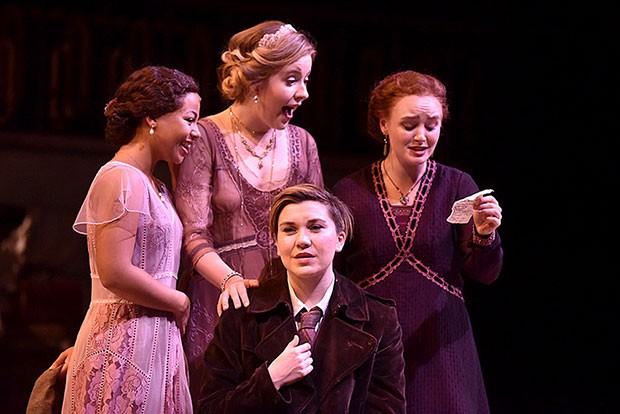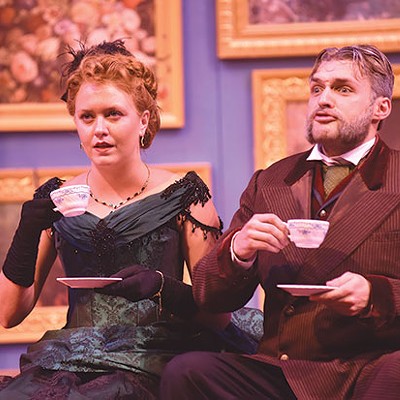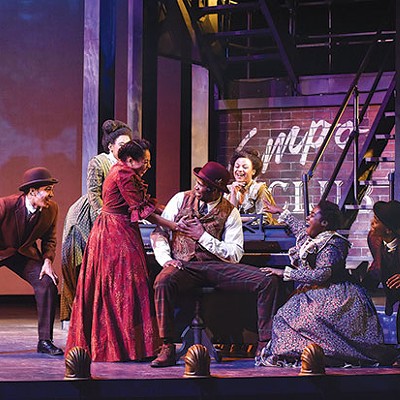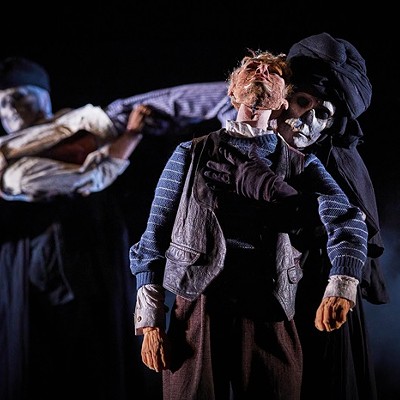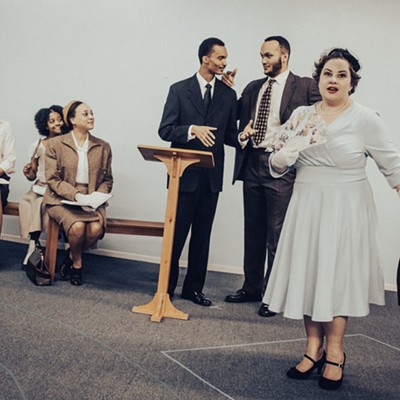Long story short: At the end of Shakespeare’s Love’s Labour’s Lost, four men learn that they must wait a year to join their beloveds. Turns out they waited a lot longer. Fast-forward to 1918ish: It’s Paris, a traumatic European war is ending, and the couples reunite. But can they rekindle love among the ruins?
That’s what playwright/director Scott Kaiser works out in (spoiler alert) Love’s Labor’s Won, his “u”-less sequel to Wm.’s early rom-com, on stage at Carnegie Mellon School of Drama. Scholars believe Shakespeare quilled a play by this name but no copies exist, so Kaiser was free to invent at (I regret this already) Will. And while his language is audaciously imitation bardian, his sensibility is 21st-century — foursquare in favor of love, peace, forgiveness, charity, feminism and (so Lysistrata!) disarmament.
It takes a while to settle into Kaiser’s project, and one’s thoughts go meta: Part of the thrill of watching Shakespeare is knowing it’s Shakespeare, so one obstacle here is knowing it isn’t. Kaiser writes few takeaway aphorisms: “Jewels are the currency of love” sounds suspiciously Lorelei Lee, and the text of the armistice is more Seussean than Shakespearean. His script, bulging with double entendres, is equally rife with metaphor and rhyming couplets. There’s also a woman-disguised-as-a-man trope wherein it’s simply impossible to believe that her friends and lover wouldn’t recognize her 100 or so pounds of flesh.
Early on, the actors try so hard to perform Kaiser’s words that he doesn’t allow them the chance to just say them. But as the quasi-complicated plot unfurls, and the characters emerge, the performances become less mannered and more enjoyably relaxed, with particular props to Kyle Decker as a condemned man, and Jordan Plutzer as a lovesick fool. Best of all is a songstress played by Rayquila Durham, whose three bluesy numbers are much too distractingly good, as if she’s in another play altogether.
And so: To see, or not to see? If you like Shakespeare, get thee to Love’s Labor’s Won, even if it’s more of a tulip than a rose. And if you don’t, nothing here will catch your conscience. The rest is — well, you know.

